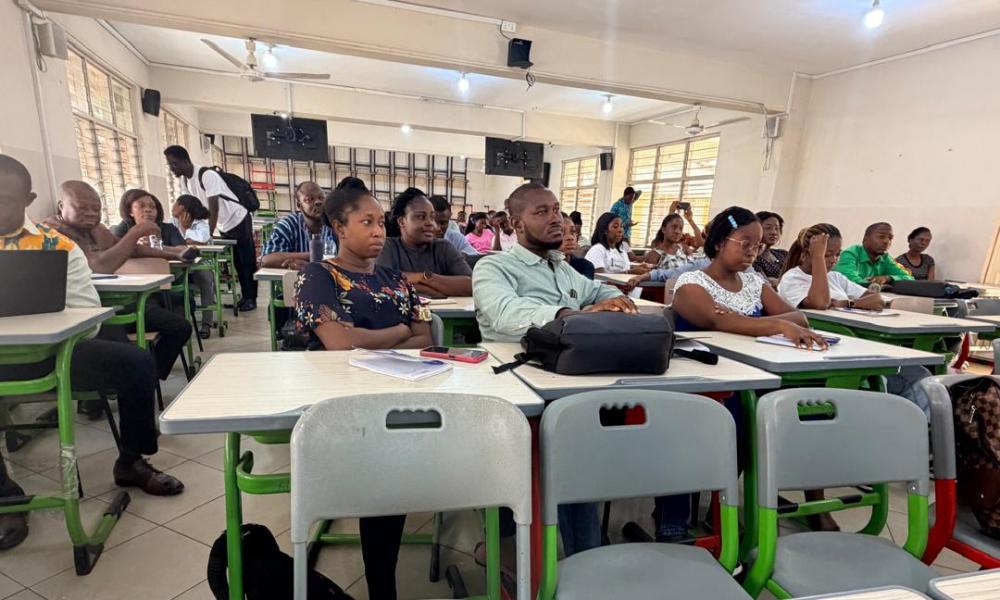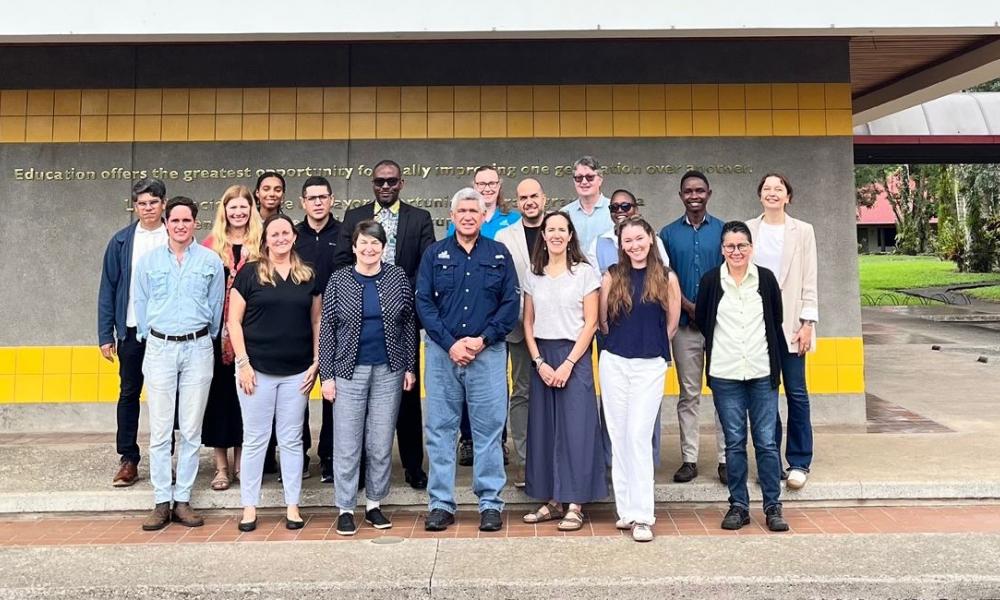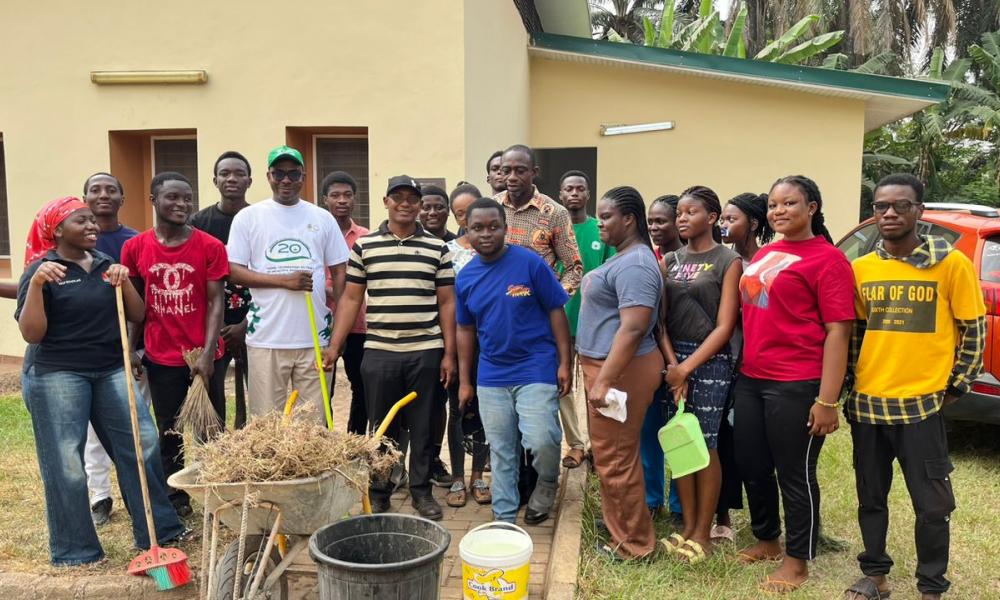FOOD SCIENCE STUDENTS VISIT ASPIRE FOODS
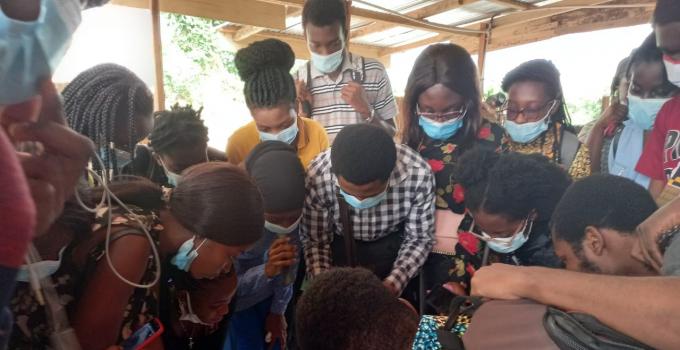
Students of the Department of Food Science and Technology taking Traditional Foods and Nutrition course visited Aspire Foods Group on the same campus, KNUST. The visit was to augment theoretical knowledge on the consumption of insects as food.
Food security and undernutrition are major threats particularly in developing countries such as Ghana. Insects are vital dietary element providing nutrients of high biological value including energy, protein and unsaturated fat that makes them a healthier option compared to livestock such as cows, goats and chicken.
Aspire Foods, situated at Mango Road of KNUST campus, is a foreign company that is into the farming, processing and sale of palm weevil larvae, popularly known in our local dialect as Akokono. The company seeks to farm locally desired edible insects as a means of addressing malnutrition and food insecurity. The President and Director, Ms Shobita Shoor, welcomed students and explained the goals and mission of the company, and extended an invitation to students who would like to undertake their projects or national service at their facility.
Miss Samira Mohammed, marketing manager explained the process of rearing/farming the insect larvae using coconut husk/mesh and feed. She explained that the rearing of these insects is environmentally friendly, as it emits fewer greenhouse gases compared to rearing of livestock as it requires significantly less land and water. Samples of the freshly cultivated insect larvae and the fully grown weevil (adult) were presented to students for observation.
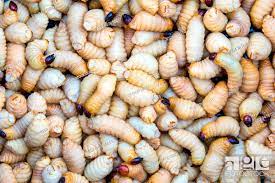

The company deals with sa le of fresh and frozen insects. Meals made from the insects are also served on the premises 'Akokono House' such as akokono sauce, akokono fried rice. marketing manager also stressed on the nutritional benefits of akokono. Even though there are challenges with insects eating by majority of people, aspire hopes to make akokono more acceptable through value added products such as akokono biscuit, kebab and shito. These value added items were displayed for marketing purposes. She admonished sudents to consider other means of adding value to the insects.
Knowing the relevance of protein, the lucrative business around the farming of edible insects and the significant impact insect consumption could have on the development of the nation was insightful to students. Students also shared their knowledge and perceptions on insects.
The trip to the ‘Akokono house’ was an enlightenment on how our traditional foods could help address food and nutrition security in Ghana and Africa at large.
The Traditional Foods and Nutrition course is facilitated by Professors Ibok Oduro and Faustina D. Wireko-Manu with Mmanuella Ankomah and Georgina Benewaa Yeboah as Teaching Assistants.
